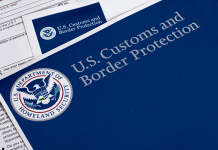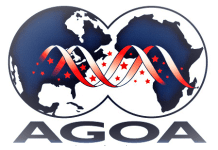 President Trump has announced his intent to negotiate a trade agreement with the Republic of Kenya. On March 17, 2020, following the procedures laid out in the Trade Promotion Authority (TPA), the Trump administration sent a letter to Congress to notify them of the intent to enter into negotiations of a trade agreement with Kenya. Following the TPA, the U.S. Trade Representative will announce negotiating objectives at least 30 days before formal negotiations begin.
President Trump has announced his intent to negotiate a trade agreement with the Republic of Kenya. On March 17, 2020, following the procedures laid out in the Trade Promotion Authority (TPA), the Trump administration sent a letter to Congress to notify them of the intent to enter into negotiations of a trade agreement with Kenya. Following the TPA, the U.S. Trade Representative will announce negotiating objectives at least 30 days before formal negotiations begin.
A trade agreement between the U.S. and Kenya would be the first agreement between the U.S. and a sub-Saharan African country. A U.S.-Kenya trade agreement would also complement Africa’s regional integration efforts, which include the landmark African Continental Free Trade Area (AfCFTA) that went into force in May 2019. Kenya is located on the eastern coast of Africa and serves as a gateway to the region and a major commercial hub that can provide opportunities for U.S. consumers, businesses, farmers, ranchers, and workers (U.S. Trade Representative).
The U.S.-Kenya Trade and Investment Working Group, established in August 2018 by President Trump and Kenyan President Kenyatta, held its third meeting in Washington in February. During the same month, the U.S. Chamber launched its U.S.-Kenya Trade Task Force to bring business executive together to “exchange ideas, build mutual trust, and seek common ground on key trade priorities with U.S. and Kenyan trade officials” (U.S. Chamber).
Kenya currently receives benefits under the Africa Growth Opportunity Act (AGOA), which was signed in May 2000 by President Bill Clinton with the objective of expanding U.S. trade and investment with sub-Saharan Africa, to stimulate economic growth, to encourage economic integration, and to facilitate sub-Saharan Africa’s integration into the global economy. However, AGOA is currently set to expire in 2025.
About Kenya
The population of Kenya totals 51.39 million people as of 2018 with the official languages of the country being English and Swahili; while many ethnic groups speak their mother tongues within their communities. Kenya is classified as a lower-middle-income economy, has a diversified economy which is the largest in eastern and central Africa. Kenya has had an annual GDP growth of almost 6% of the last decade, with GDP totaling $87.9 billion in 2018.
Nairobi, Kenya’s capital, serves as the major commercial hub. There is an increasing number of American companies that have chosen Nairobi to establish their regional African-wide headquarters. Kenya recently moved up 5 spots on the World Bank’s Doing Business Index, ranking 56th out of 190.
U.S.-Kenya Trade
Total U.S.-Kenya two-way trade currently reaches about $1 billion annually. In 2019, the U.S. exported $391 million worth of goods to Kenya. Chemicals made up the largest percentage of the total at 21.5%. This was followed by transportation equipment at 17% and agricultural products and computer and electronic products at 9.8% and 9.7%, respectively. Imports from Kenya into the U.S. totaled $667.221 million in 2019. Apparel manufacturing products made up the largest percentage at 68% of the total. The next largest imports were agricultural products, minerals and ores, and food manufactures totaling 14.3%, 7.9%, and 2.9%, respectively (International Trade Administration). U.S. foreign direct investment (stock) in Kenya stood at $405 million in 2017 (U.S. Trade Representative).
California-Kenya Trade
California is the second largest exporting state to Kenya. In 2019, California exported $38.3 million worth of goods to Kenya. Chemicals made up the largest portion at 21.2% of the total and $8.075 million. This was followed by computer and electronic products with 19.8% and transportation equipment at 17.8%. Special classification provisions also made up 14% of total goods exported.
In 2019, California imported $87.5 million worth of goods from Kenya, 63.4% of which was made up apparel manufacturing products. This was followed by agricultural products at 27.9%, food manufactures at 4.9%, and reimports at 0.9%. In 2019, California was also the second largest state importing Kenyan goods. (International Trade Administration).
CalChamber Position
The California Chamber of Commerce, in keeping with long-standing policy, enthusiastically supports free trade worldwide, expansion of international trade and investment, fair and equitable market access for California products abroad and elimination of disincentives that impede the international competitiveness of California business. New multilateral, sectoral and regional trade agreements ensure that the United States may continue to gain access to world markets, resulting in an improved economy and additional employment of Americans.
For further information, please see www.calchamber.com/Kenya.
Staff Contact: Susanne T. Stirling


